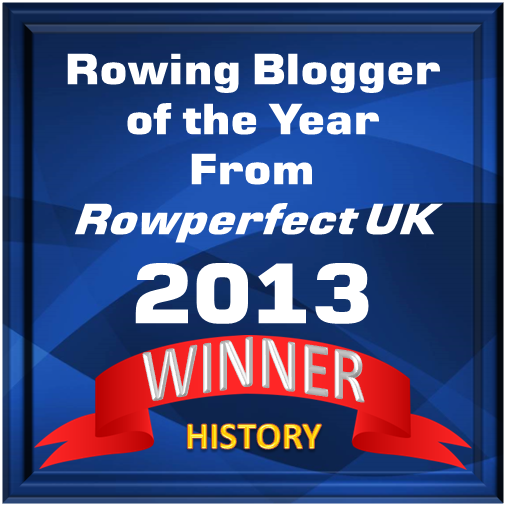Here continues Greg Denieffe’s article about the Irish teams competing at the 1948 Olympic Games:
Back in Henley, the Irish crew practiced on the course. Also there, were the FISA officials who held a meeting: thirty-two county (all-Ireland) affiliation was confirmed and the entry to participate in the Games was made. The decision cleared the way for the Irish crew to race as selected and established all-Ireland status for future FISA/IOC events. Boxing was the only other sport in 1948 to have representatives from both Northern Ireland and the Irish Free State on the Irish Olympic team: Willie Barnes from Windsor, Belfast, fought in the fly-weight division.
At the request of the Organising Committee, the ARA undertook the general management of the Olympic Regatta. The ARA in turn appointed the Stewards of Henley Royal Regatta under the chairmanship of Harcourt Gold to run the Regatta on their behalf. The rules of FISA governed all matters to do with racing, including the introduction of the repechage system giving each defeated crew a second chance to progress. The regular Royal Regatta course was shortened to 1,929 metres and also widened to 36 metres to take three crews. The piles and booms were removed and replaced with marker buoys.
Eight-six crews, a new record, from twenty-seven countries competed at Henley-on-Thames for the seven Olympic titles on offer. Twelve entries were received for the eights and Ireland, although ill prepared, was proud to be among them. But what were they to be called? In the end the organizers of the regatta decided that ‘Ireland’ would be the designation and so that was how they appeared in the printed programmes.
The programme for day one of the 1948 Olympic Regatta.
Heat three of the eights with Ireland on the centre station. Strangely, the crews are numbered from stroke to bow.
The heats for all events were held on Thursday, 5 August, and the Irish crew made their Olympic debut in the penultimate race at 6.00 p.m. They finished third a long way behind Canada and Portugal. Only the heat winners progressed to the semi-finals and the other crews had to race the following day in one of three repechages. In that race, Norway (6:12.5) beat Ireland by exactly twenty seconds and the Olympic adventure was over for the men in green.
The Official Report of the Organizing Committee for the XIV Olympiad was published in 1951, and all references to ‘Ireland’ at the Olympic regatta were changed to ‘Eire’.
Results of heats three and four of the Eights at the Olympic Regatta as published in The Official Report.
The Irish team manager did have one moral victory over Lord Burghley. At a Buckingham Palace reception for the Olympic teams, the Irish were once again behind Egypt. As they approached the Throne Room, the King’s Equerry asked how they would like to be announced. “Ireland,” said Chisholm firmly. The King seemed fine with this, but later Burghley wrote to complain that under the Eire (Confirmation of Agreements) Act, 1938, the former Irish Free State was called Eire (in the Act and the Official Report, the omission of the fada or acute accent over the E was deliberate). The row continued until 1949 when the Republic of Ireland was declared.
It was not until 1952 that the International Olympic Committee conceded the right of Irish citizens born in Northern Ireland to compete for Ireland. At the same time the Irish Olympic Council changed its name to The Olympic Council of Ireland but the ‘battle of the names’ continued. Lord Killanin, president of the Irish Council, was admitted to the IOC and persuaded Avery Brundage, the IOC president, to accept ‘Ireland’ as the designation for the 1956 Melbourne Games and the IOC followed suit. The only objection came from Lord Burghley. Killanin was later forced to protest over the continued use of ‘Eire’ by the IAAF, (presided over by Burghley), the only association which did not accept the IOC’s decision. Lord Killanin gave outstanding service to the Olympic movement and served as president of the IOC from 1972 to 1980.
Interestingly, Christopher Barton was one of the eight men born in the Irish Free State who represented Great Britain at the 1948 Games. He was born in Celbridge, County Kildare, in 1927 and was educated at St. Columba’s College, Dublin and Jesus College, Cambridge. In 1948, he was a member of the victorious Cambridge crew in the Boat Race and represented Leander at Henley. He stroked the Great Britain crew to the silver medal in the eights.
He was not the first man born in Ireland to win an Olympic rowing medal for Great Britain. That honour belongs to Terence Sanders who was born on 2 June, 1901, in Charleville, County Cork. He went to Cambridge University and took a degree in engineering, and stroked the losing Cambridge crew in the 1923 University Boat Race. At the 1924 Paris Olympic Games, he stroked the British coxless four to the gold medal ahead of Canada and Switzerland. In 1929, he and G. C. Drinkwater co-wrote the book The University Boat Race: Official Centenary History 1829-1929.
The final word on the 1948 crew belongs to Michael Johnson: “They lost their two races, heat and repechage, but they held The Thin Green Line. And, they brought Ireland into the world of real international rowing for the first time.”
Here is a short video of the 1948 Olympic final of the eights:













.jpg)

+Cambridge+Boat+of+2013..JPG)
)

No comments:
Post a Comment